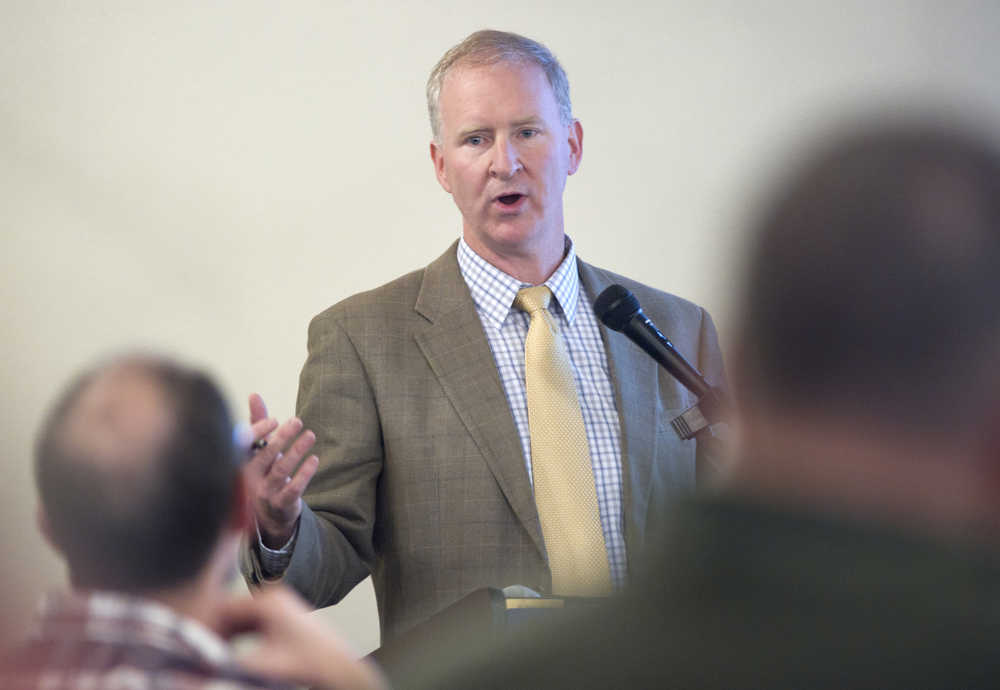At Thursday’s Juneau Chamber of Commerce Luncheon, Brian Holst took two polls.
They said quite a bit about what the capital city is expecting from the next year.
Holst, the director of the Juneau Economic Development Council, opened a presentation to Chamber members by asking their thoughts about what Juneau’s economy will look like one year from now. Seventeen percent thought it would be better, 48 percent thought it would be the same, and 36 percent said it would be worse.
Holst gave his presentation and held the poll again.
The second time, 48 percent of the Chamber thought Juneau’s economy will be worse next year than it is right now.
“This year, we have some challenges,” Holst had said during his presentation.
Of the almost 18,000 jobs counted in Juneau during 2015, almost 7,000 are government positions — state, local and federal.
“State government is 20 percent of Juneau employment, 27 percent of Juneau earnings,” Holst said. “Government is a really important sector in Juneau, but what’s happening to government?”
He proceeded to pull up a PowerPoint slide entitled “Government Jobs Are Disappearing.”
In the past two years, Holst said, Juneau has lost 387 state jobs as a result of budget cuts. Those are among nearly 2,000 jobs lost statewide.
If you look at Juneau’s employment figures, you won’t see those losses. The 17,930 jobs counted in 2015 are just 50 fewer than the number counted in 2014.
That’s because Juneau’s tourism sector is booming, adding jobs at a pace seen by few other industries.
That creates a somewhat hidden problem, Holst said. State jobs are high-paying, full-time work with good health care and retirement benefits. Tourism jobs are usually seasonal, part-time and don’t come with benefits.
“A lot of good-paying jobs are going away,” Holst said. “Where we see growth here is not exactly where we want it.”
There are some bright spots, however. Juneau’s unemployment rate remains low, and the city still imports nonresident workers to meet demand in some industries — particularly seasonal ones.
Demographically, Holst said, Juneau is experiencing “a really interesting phenomenon” with large numbers of retirees remaining in town even as the city sees a surge in the number of younger residents.
“Juneau’s cool again,” Holst said. “We’ve got 25-35-year-olds staying in Juneau in a disproportionate number.”
The key factor to Juneau’s fiscal health, however, is the state budget. Unless the Alaska Legislature comes up with a plan to resolve the state’s $4 billion annual deficit and steep future job cuts, the city will keep bleeding.
“If they choose not to deal with this fiscal crisis, it could really hurt,” Holst said.
Bruce Abel, sitting in the audience, said there’s another solution to Juneau’s problems: Building a road out.
“I look at the fact (the losses of the past two years) could be completely offset by building a road, yet we have a governor who’s sitting on his hands, dithering,” he said.
—
Read more news:
Signs of Trump: If a picture is worth 1,000 words, what’s a sign?

